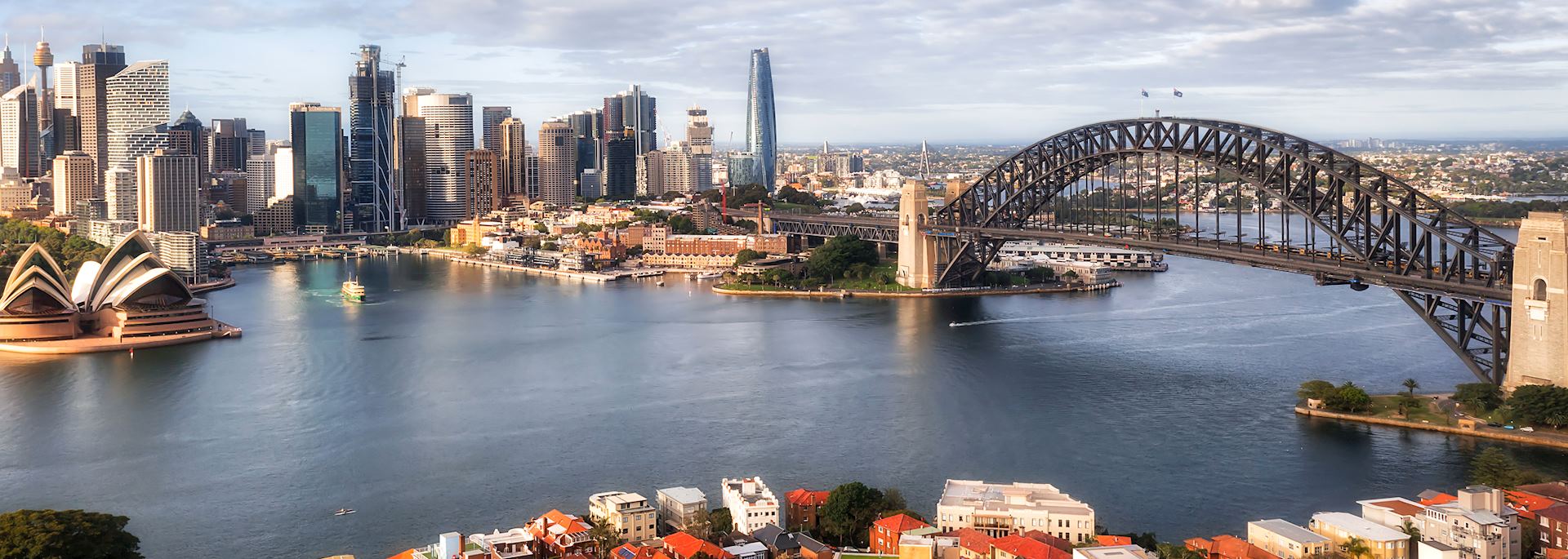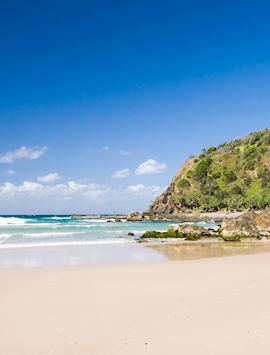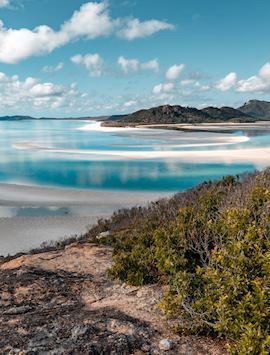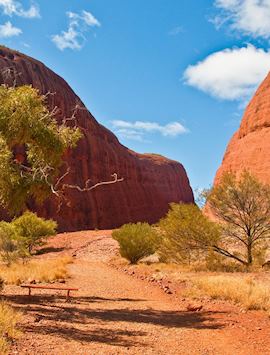By Australia specialist Janin
Linger a little longer in Sydney, and you’ll see why it regularly appears in top-ten lists of the world’s most liveable cities. And, although there’s much more to Australia than its cities, a longer stay in Sydney can be more rewarding than you might expect. You have the breathing space to experience its beach culture on top of its central districts and nearby national parks. And, you won’t necessarily need your own transport.
Based on my own time as a resident, and taking inspiration from this beach-focused trip to Australia, I’ve compiled a suggested itinerary for how to spend quality time in Australia’s showpiece city.
Hopefully, it will give you a greater feel for Sydney, the wealth of experiences it contains, and a taste for what it’s like to live here.
Day 1: Sydney Harbour and waterside life
Ease yourself into Sydney by heading to the throbbing heart of its central business district (CBD), Circular Quay.
From here, you can take one of a range of relaxed boat trips, varying from short hops to luxurious, private cruises out across Sydney Harbour. I always think that Sydney is best admired from the water. It’s only then you get a sense of how the harbor wraps around the city. It also gives you the best perspective of its top-billed sights: the Opera House with its opalescent sails, and Sydney Harbour’s sweeping through arch bridge.
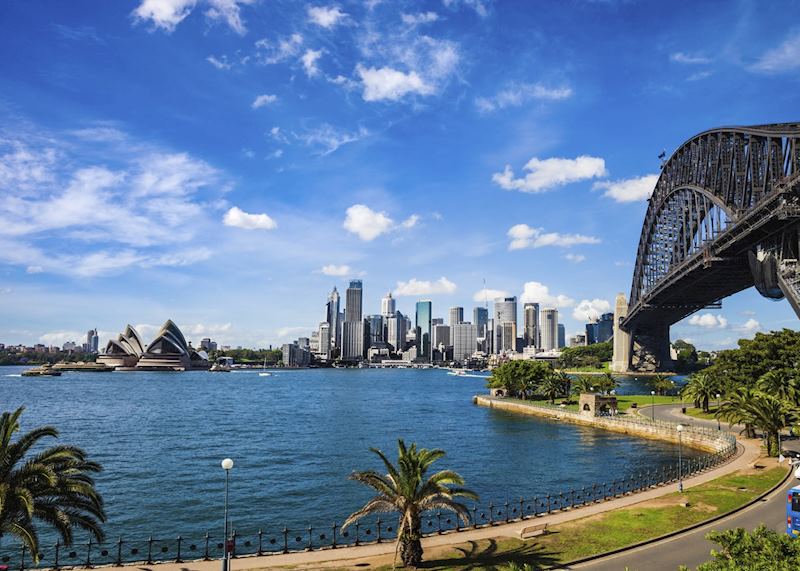
Alternatively, if you’re shaking off jet lag, the city’s Royal Botanic Garden offers some of the best easy-to-access views encompassing both the Opera House and the bridge. You can find yourself a spot under one of its generously shady palms for a picnic (or a snooze).
If you’re looking for good harbor views but also fancy exploring independently, I’d recommend taking one of the inexpensive, government-administered ferries out to a Sydney suburb.
Manly, to the north, is one of the best (although I’m biased — I called it home for years). It’s a sporty yet laid-back community, where locals run along the beaches in the mornings, or flock to one of its many yoga studios.
Then there’s upmarket, gleaming Rose Bay, or Glebe, a more workaday area crammed, like many Sydney enclaves, with proudly independent coffee houses and shops.
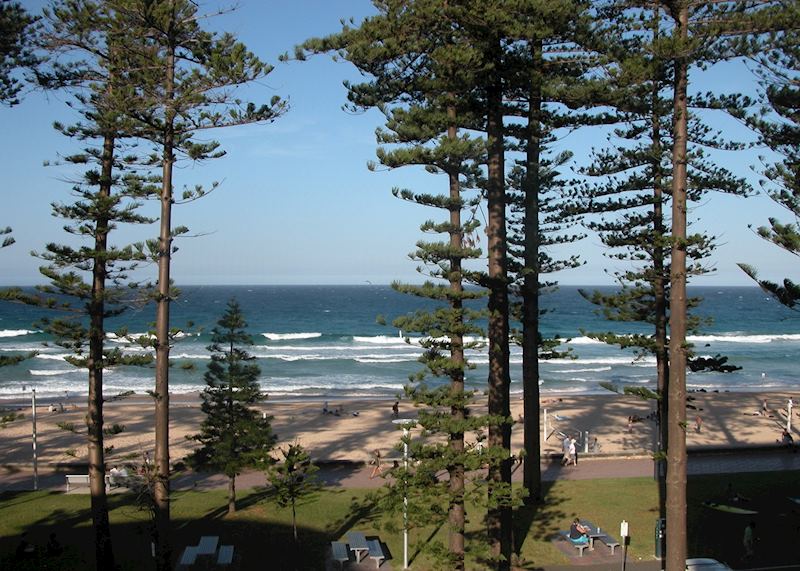
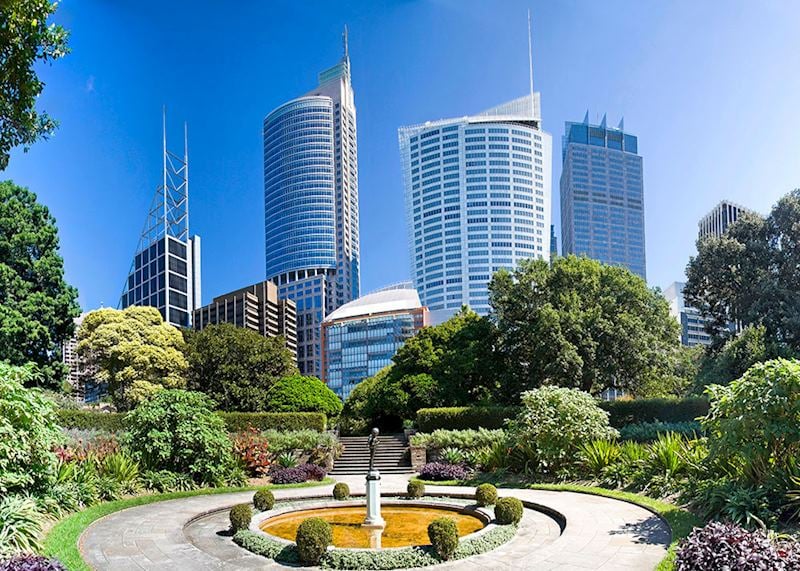
Come evening, you might like to take a seat at the open-air Opera Bar overlooking the hubbub of Circular Quay. Yes, you’ll see fellow out-of-towners, but you’ll also find yourself rubbing shoulders with besuited commuters and groups of friends meeting for after-work drinks. On a Sunday, there’s the added bonus of live music.
Day 2: Sydney’s beaches
This morning, you could escape the high-rises and rampant development of the CBD to experience a slice of real Sydney: its beaches. Beach time is crucial to Sydneysider life, and everyone has their go-to strip of sand.
The eastern suburb of Bondi is well-known, and easily reached via bus or train from the CBD. But, its good-looking beach — all burnished gold and surf-washed shoreline — can be crowded. Better, instead, to take a swim at the beachfront Bondi Icebergs Club (members-only, but you can sign up on the spot for a token fee).
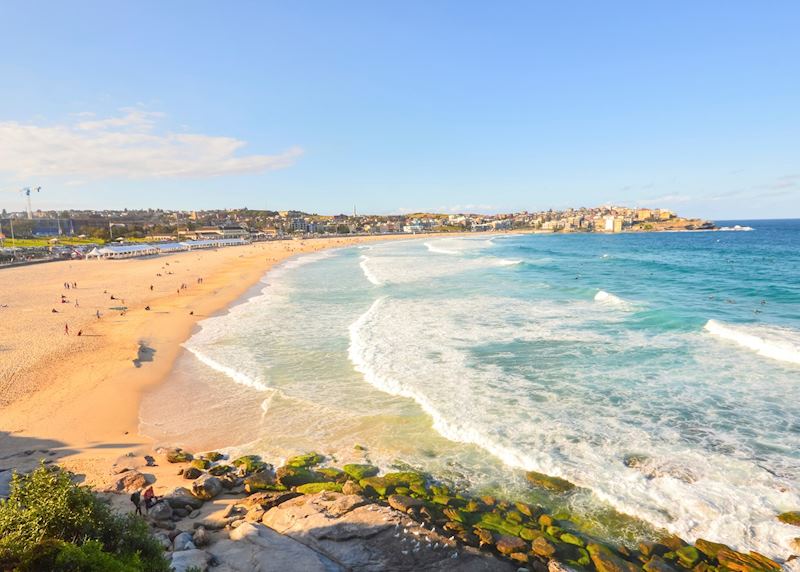
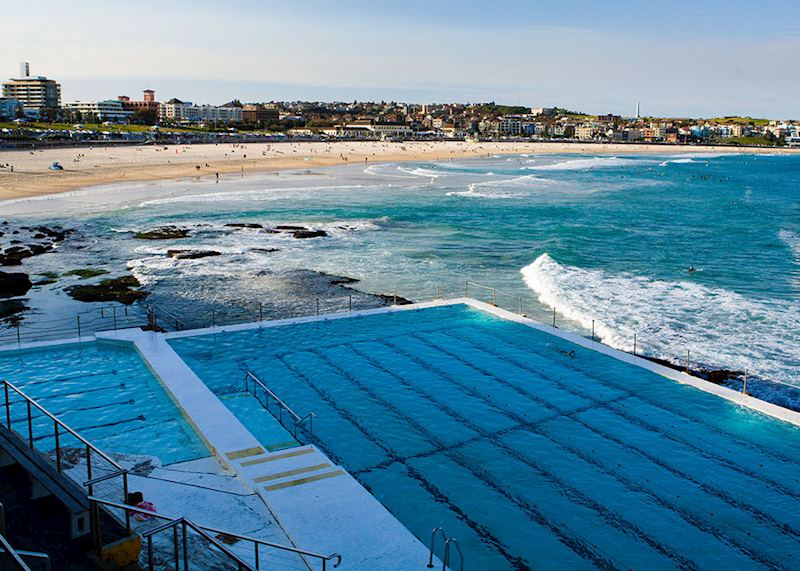
The club’s turquoise seawater infinity pool sits right on the ocean. It also has an excellent café for brunch (another Sydney institution). You could happily spend a day in Bondi, taking on its coastal walk (more on that shortly).
Alternatively, Manly deserves a closer look. It hosts one of Sydney’s best beaches in my book.
Shelly Beach is an inlet with a chunk of sand the shade of cornmeal. Being west-facing (some say it’s the only west-facing beach on Australia’s east coast), it’s protected from the swells that make Sydney’s coastline so popular with surfers. It’s also sheltered from afternoon onshore winds. Its waters are calm — ideal for swimming or paddleboarding — and the shallow seabed is a healthy marine reserve.
You can snorkel and dive alongside (harmless) dusky whaler sharks, weedy sea dragons, and fluorescently bright nudibranchs. If you’re accustomed to open-water swimming, you might even be tempted to join Manly residents on their daily early-morning swim from Manly Beach to Shelly Beach.
And, even if you don’t want to get into the water, Shelly is still a great spot to spend a day doing exactly as the locals do: lounge on the sand with a book, or cook an impromptu barbecue. (There are barbecue stands available to use along the beach.)
Day 3: A coastal walk
Sydney has a number of rewarding coastal walks, most prominently the 12 km (7 mile) boardwalk that runs from Bondi to Coogee beaches via Bronte Beach. It hugs sandstone cliffs weathered, in places, into huge hollows, and the route even hosts an annual open-air sculpture exhibition. It’s at its finest in the morning, before it becomes slightly clogged with families, joggers and dog walkers.
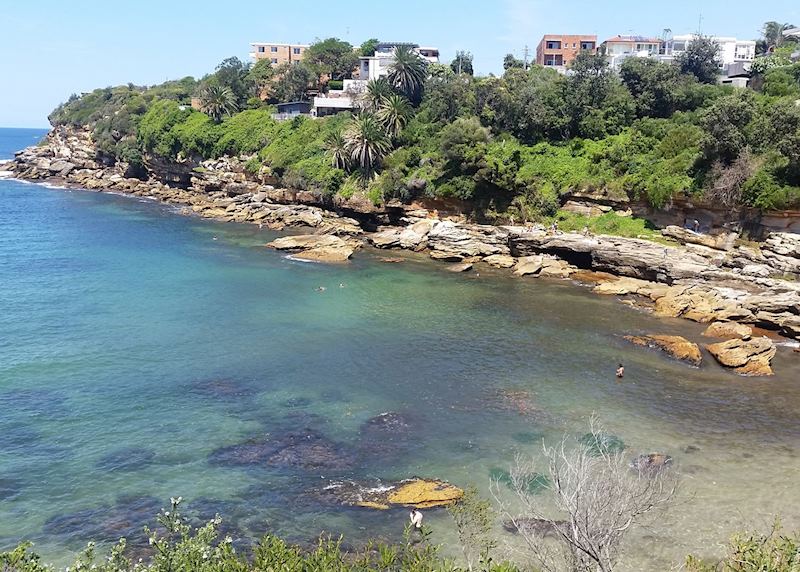
Watsons Bay, also to the west of the CBD (and easy to get to by ferry from Circular Quay), has a great walk. It takes you along a bluff to the tip of South Head, a stringy peninsula that culminates in the red-and-white striped Hornby Lighthouse.
You’re treated en route to views of the distant CBD skyline (including the smallest sliver of the Sydney Harbour Bridge). Afterwards, I suggest rewarding yourself with lunch at Doyles, a much-acclaimed fish restaurant. Or, for something more low-key, Doyles also have a more casual eatery next door to their restaurant, which happens to do very good fish and chips. Both places are conveniently located right on Watsons Bay’s wharf — ideal for catching the ferry back to the CBD afterwards.
Day 4: The Blue Mountains or Ku-ring-gai Chase national parks
The Blue Mountains National Park is a bona fide area of Australian wilderness only a 90-minute drive from Sydney. Leaving the city behind, you find yourself in a backcountry of sandstone escarpments, Wollemi pines and eucalyptus forest stretching to the horizon.
You can also get there by train, taking a hop-on, hop-off bus to reach certain lookouts, or take a small-group tour.
For me, hiking in the Blue Mountains beats a simple tour of the park’s busy viewpoints, because it plants you in quieter areas of bush. You can find spots to look out over the eucalyptus forest and admire its smoky-blue haze (attributed to the eucalypts releasing a fine mist of oil).
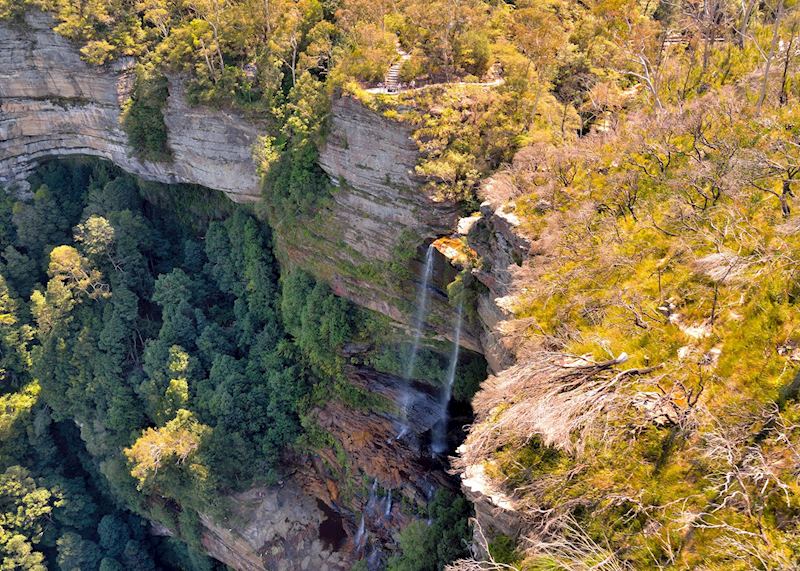
There are bushwalking tracks of all lengths and for all fitness abilities. You can choose a half-hour stroll, or a more challenging track such as the National Pass, which involves walking up and down a steep staircase hewed out of the park’s cliff faces.
I like a trail that loops around Wentworth Falls, one of the park’s most esthetically pleasing waterfalls. You begin on a path that’s ensconced in woodland, before emerging onto a viewing platform right above the falls, so you can peer down into the rust-red plunge pool.
And, while you’re in the Blue Mountains, try to stop off in Leura, a one-road village lined with boutique shops selling everything from artisan leather to local truffles.
For something more off the beaten track, choose to spend the day in a place that sees very few overseas visitors to Sydney: Ku-ring-gai Chase National Park. Less than an hour’s drive north of Sydney, it’s a mass of bushland that gives way to creeks, bays, and a long, sandy spit leading to a lighthouse, Barrenjoey.
The park was once important aboriginal land, and you can take a tour to explore its heritage. A guide will introduce you to rock art sites, shell middens (where aboriginal people discarded the remnants of their meals), and rock caves.
Day 5: The Rocks district, art, and the Harbour Bridge
I’d make your last day in the city a fairly languid one.
You might wish to explore one or two art galleries. The Museum of Contemporary Art Australia sits on Circular Quay at the edge of Sydney’s historic district, the Rocks, and occupies an Art Deco former maritime building. Its café also happens to boast prime views over the Opera House and Sydney Harbour.
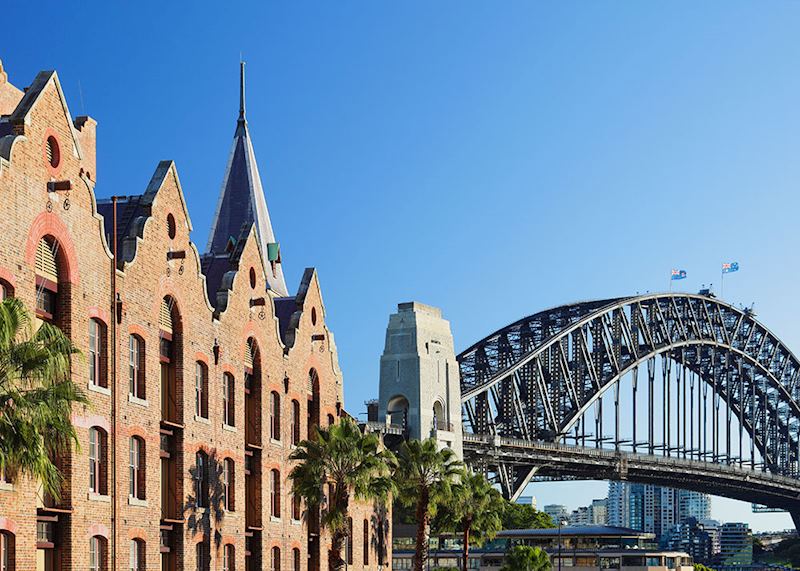
For more classical collections, a short walk away through the Royal Botanic Garden you’ll come to the Art Gallery of New South Wales.
Both galleries offer free guided tours, run by experts, which throw you into particular collections in detail. They can also be a good way of getting familiar with a school you might never have encountered before, such as aboriginal art.
You could then explore the Rocks quarter proper. It’s a hilly cluster of restored sandstone buildings, many dating back to convict times. It can be touristy, so pick a quiet time of day.
You can follow a self-guided walking trail, listen to buskers, and poke around some of the shops selling arty prints and objets d’art. There’s also a street market at weekends. The saloon-style pubs generally start to fill up come early evening, and the ambiance is relaxed and jovial.
If you climb to the crest of the ridge the district gathers around, you’ll reach the venerable copper-domed Sydney Observatory, which looks a bit like a church to astronomy.
The time ball atop its Norman-style tower drops at 1pm daily — originally, it allowed passing ships to set their chronometers accurately. The lawns around the observatory also give you uncrowded views of the Sydney Harbour Bridge.
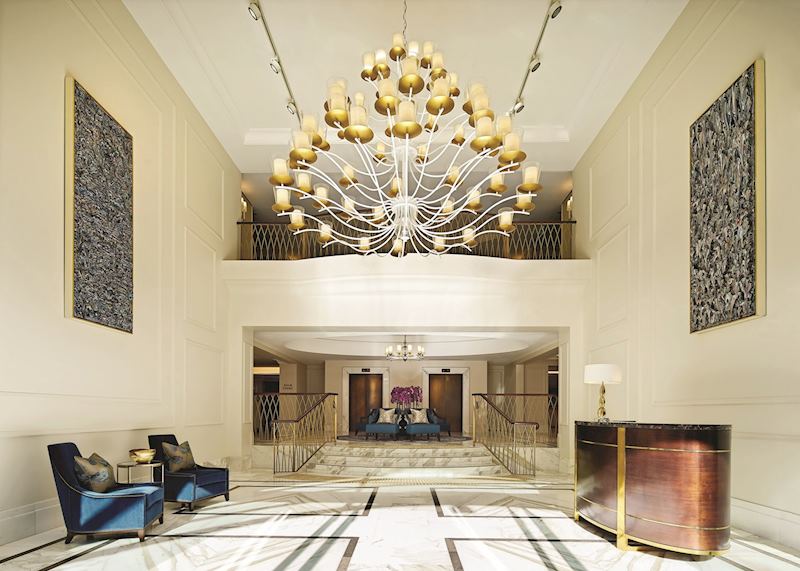
If you’re intrigued by the prospect of climbing said bridge, but aren’t inclined to embark on the full Sydney Harbour Bridge Climb, you can simply climb up one of its pylons. The views over the CBD, the water, and the Opera House are almost as far-reaching as the panorama you receive at the apex of the arch.
Where to stay in Sydney
Choosing a base in the city can depend on how much of the suburbs and beaches you intend to explore. Please speak to your specialist, who’ll help you pinpoint your ideal location and place to stay.
The Langham is a good option if you’re set on bedding down in the CBD. Although there are no views to speak of, the service is exceptional, and the hotel is tucked away in a part of the Rocks that’s more residential and local in feel compared to other, busier areas.
If you’re not wedded to the idea of staying in the CBD and if self-catering appeals, consider a private luxury home. They’re ideal for longer stays in Sydney, for larger groups, and for families — all homes sleep at least six people.
They can be a refreshing counterpoint to hotels: although glossy, they feel lived-in, and burst with the artistic personalities of their owners. An added bonus: they come with an on-call, 24-hour concierge service. There’s really no better way to get a taste of living like a local.
There are options all over the city, from penthouses in Bondi Beach to three-story family homes in chic suburbs such as Woollahra, which is closer to central Sydney.
Read more about trips to Australia
Start thinking about your experience. These itineraries are simply suggestions for how you could enjoy some of the same experiences as our specialists. They're just for inspiration, because your trip will be created around your particular tastes.
View All Tours in Australia